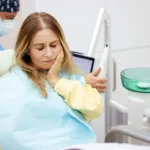When an animal bites you, seeking prompt medical attention is a sound decision. Emergency rooms may provide services to evaluate and treat wounds from urgent animal encounters. A medical professional can clean the injury and assess the need for further treatment, which may involve vaccinations. Here is more information about the role of vaccinations after an animal bite:
Preventing Rabies
The rabies virus is a serious concern after an animal bite. If the animal that bit you might have rabies, doctors will recommend post-exposure prophylaxis (PEP). PEP involves a series of shots to stop the virus from taking hold. The first dose is given soon after the bite, and you receive additional doses over the next two weeks.
This treatment is highly effective when administered correctly. Medical providers begin rabies treatment based on risk. You typically need the vaccination series if the animal cannot be found or tested, but only under certain conditions. The type of animal can also affect the decision.
Rabies is a neurological disease, and it may become fatal once symptoms appear. Treatment after exposure is the only way to prevent the illness. The vaccine works by helping your body build an immune response before the virus reaches your central nervous system.
Treating Tetanus
Tetanus is a bacterial infection that may also affect the nervous system. The bacteria that cause tetanus might be found in soil, dust, and manure. An animal bite’s deep wound provides an entry point for these bacteria. If your tetanus vaccination is not current, a booster shot may be recommended.
Your vaccination history determines whether you need a tetanus shot. A booster is typically advised if you have not had one in the last five years. Specialists in an emergency room may clean the wound thoroughly. This cleaning eliminates dirt and bacteria that could cause tetanus or other infections.
Combining Antibiotics
Doctors may prescribe antibiotics to prevent bacterial infections. An animal’s mouth contains many types of bacteria that are introduced into the wound. Antibiotics work to kill these germs, thereby helping to reduce the risk of both localized and systemic infections. You take these medications alongside any recommended vaccination schedule. Some wounds have a higher infection risk. These include:
- Deep puncture wounds
- Bites on hands or feet
- Wounds in individuals with weakened immune systems
Vaccinations and antibiotics serve different functions, but both are fundamental for health protection. While vaccines stimulate your immune system to fight specific viruses like rabies or toxins from tetanus, antibiotics directly target and kill harmful bacteria. This combined approach addresses multiple potential threats from a single animal bite.
Avoiding Symptoms
Vaccinations are a preventative measure, not a treatment for existing symptoms of rabies or tetanus. They work by preparing your immune system to recognize and fight off a future infection before it causes illness. Once symptoms of these diseases begin, the vaccines are no longer effective. Receiving post-exposure shots promptly after a bite is the goal.
Visit an Emergency Room
After any animal bite, going to an emergency room allows for a professional evaluation of your injury. A medical team can properly clean the wound, and they will assess your specific situation. This assessment helps determine if you need vaccinations or other treatments. If an animal has bitten you, seek a medical evaluation to determine the next steps for your care.











